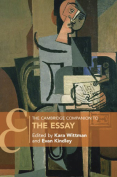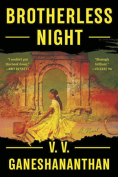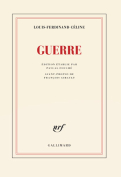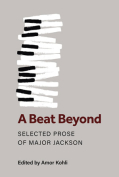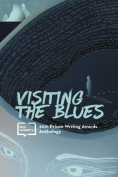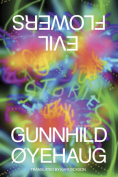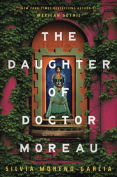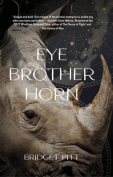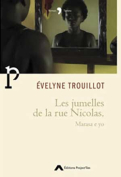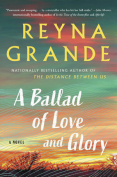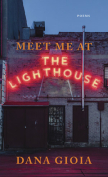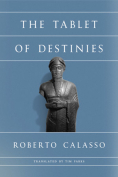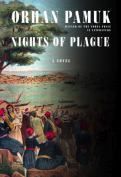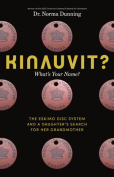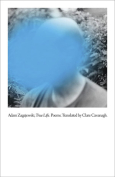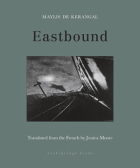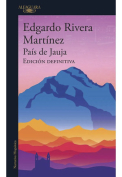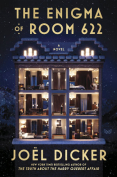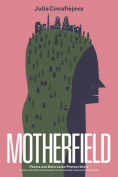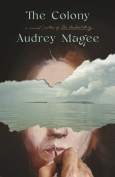Meet Me at the Lighthouse by Dana Gioia
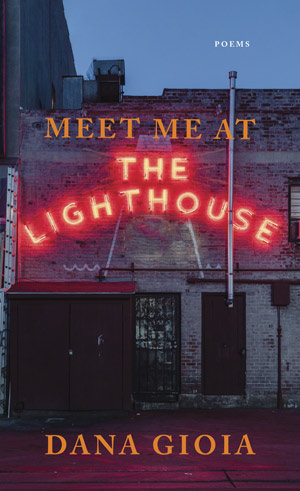 Minneapolis. Graywolf Press. 2023. 72 pages.
Minneapolis. Graywolf Press. 2023. 72 pages.
DANA GIOIA’S newest book, Meet Me at the Lighthouse, includes several poems that are among the best he has written, especially the title poem and his hymn to Los Angeles, “Psalm of the Heights.” The title poem, which starts the book, gives direction to “Meet me at the Lighthouse in Hermosa Beach, / That shabby nightclub on its foggy pier. Let’s aim for the summer of ’71, / When all our friends were young and immortal.” We soon discover that the nightclub has “watery drinks” and the best jazz talents “in Tartarus.” We also discover that the addressed person is dead and invited to spend the night (“Tell Dr. Death you’ll be back before dawn”), drinking and listening to “the swinging masters of our West Coast soul” (a playful allusion to a line in Yeats’s “Sailing to Byzantium”). The book’s initial invitation is uncannily akin to that of Frost in “Directive”: “Here are your waters and your watering places. Drink and be whole again beyond confusion.” The poem, then, establishes the lighthouse as a central metaphor for the imagination and the activity of remembrance, means for reconstituting our own past and the otherwise irreversible losses of our lives.
Notably, this activity takes place at night, sleepless night, that time when a ship at sea, if not for the lighthouse, might founder in the dark. So, the book begins with a hint about living and becomes itself “the Lighthouse.” We enter into a night of song, and the lyrical quality of Gioia’s work has never been better. In fact, within the lighthouse of the book, many of the poems are actually songs, performed and recorded as such: we have the nearly five-page ballad of Jesús Ortiz, a beautifully written homage for the poet’s Mexican great-grandfather who was murdered in the States, shot dead without provocation in a saloon in Wyoming; we have three beautiful psalms for Los Angeles, totaling seven pages; we have three song lyrics written for composer and jazz pianist Helen Sung, which she set to music in her recent album Sung with Words (2018); and finally we have the lyrics to “The Treasure Song” from Gioia’s own libretto for the opera The Three Feathers, by Lori Laitman.
One song in particular is especially beautiful, “Psalm of the Heights,” which begins by contending that “You don’t fall in love with Los Angeles / Until you’ve seen it from a distance after dark. / Up in the heights of the Hollywood Hills / You can mute the sounds and find perspective. / The pulsing anger of the traffic dissipates, / and our swank unmanageable metropolis / Dissolves with all its signage and its sewage— / until only the radiance remains. / That’s when the City of Angels appears, / Silent and weightless as a dancer’s dream.” The poet does not idealize the city. Instead, he sees it (in the previous psalm) as “beautiful and obscene . . . impossible to pardon,” and here as a “demi-galaxy,” a “zodiac” with its own “starry constellations”; however, it is a fallen world, the City of Man after all, not of angels, “where ecstasy cohabits with despair, / lascivious and fitful as a pair of lovers” and where “we are all immortal.” But this is the lie, and the seductive “spices of the midnight air” lure you downward, and “the city whispers to you [serpentlike]: / Come down and play in the traffic. / Merge into the moving lights, our myriad, / The luminous multitudes that surround you. / Join their fiery orbit. Shine with us tonight. / Where else can you become a star?” So, in an appeal to our senses and our vanity, we are tempted to descend in order to ascend. We are reminded of one of the temptations of Christ: “Again, the devil took Him up on an exceedingly high mountain, and showed Him all the kingdoms of the world and their glory” (NKJV).
The book ends appropriately with a descent, “The Underworld,” a poem in seventeen short sections, which finishes by asserting that the real underworld is not the one of our classical myths with the river Styx, Cerberus, Sisyphean tasks, etc., but one with “No sun, no moon, no stars, no sky, no end.” This eternal no-thingness has the effect of sending us back into the book, the lighthouse of memory, imagination, and the arts. The first and last poems serve as brackets for everything in between, like two hands holding the entirety of lived life and so preserving it.
Fred Dings
University of South Carolina
